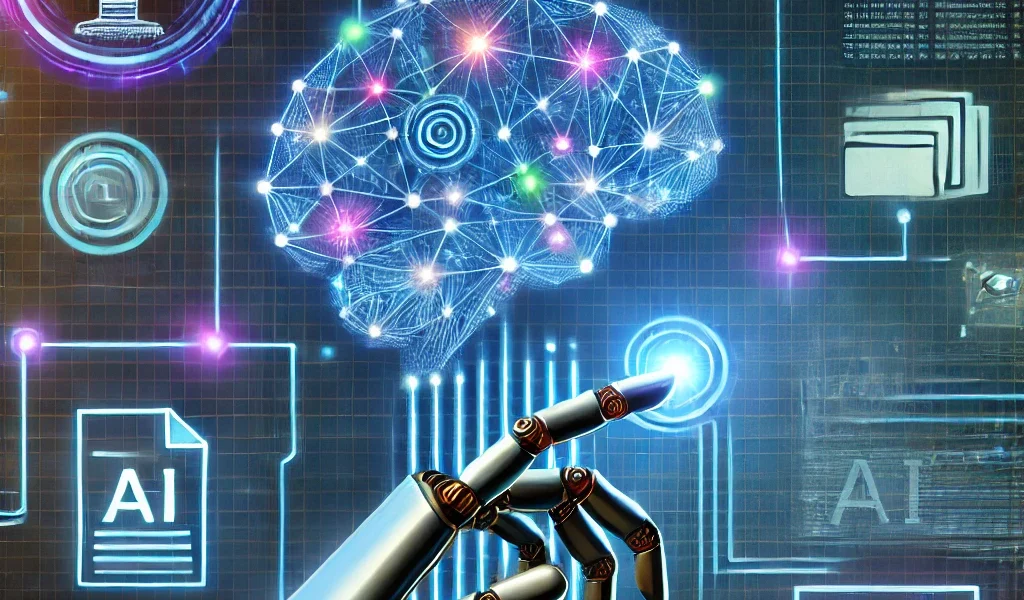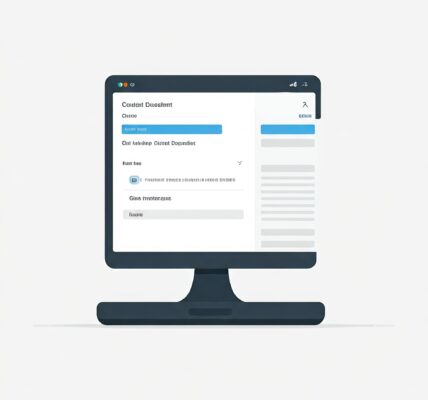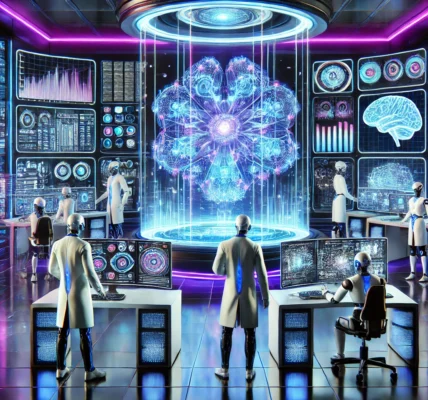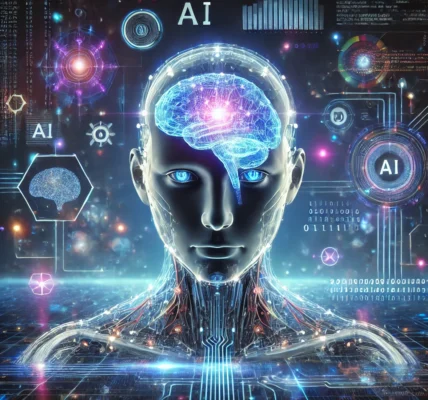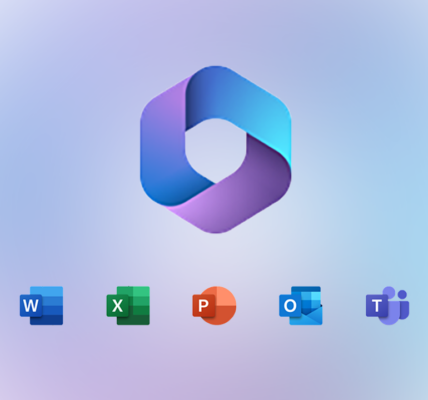The digital age has ushered in an era of unprecedented technological advancement, and at the forefront of this revolution is Artificial Intelligence (AI). No longer a futuristic fantasy, AI is actively reshaping industries and redefining the way we work. One of the most impactful applications of AI lies in its ability to automate repetitive tasks, freeing up human capital for more strategic and creative endeavors. This article explores the transformative power of AI in automating mundane tasks, streamlining workflows, and ultimately, enhancing productivity across various sectors. From automating data entry to complex process management, AI is poised to revolutionize the modern workplace.
Unleashing AI for Task Automation
AI-powered automation is more than just a technological upgrade; it’s a paradigm shift in how we approach work. By delegating repetitive, time-consuming tasks to intelligent systems, businesses can unlock new levels of efficiency and accuracy. Imagine a world where data entry is handled seamlessly, reports are generated automatically, and customer inquiries are addressed instantaneously. This is the promise of AI-driven task automation.
The benefits extend beyond mere efficiency. By eliminating human error from routine tasks, AI ensures higher quality outputs and reduces the risk of costly mistakes. This heightened accuracy translates to improved data integrity, more reliable processes, and ultimately, better business decisions.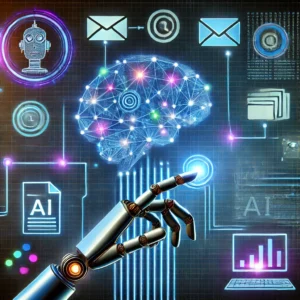
Furthermore, AI’s ability to learn and adapt makes it an invaluable tool for continuous improvement. As AI systems process more data, they become increasingly proficient at identifying patterns and optimizing workflows. This constant learning loop leads to progressively streamlined processes and enhanced productivity over time.
Finally, freeing up human employees from mundane tasks allows them to focus on higher-value activities that require creativity, critical thinking, and complex problem-solving. This shift empowers employees to contribute more meaningfully to the organization and fosters a more engaging and fulfilling work environment.
Streamlining Workflows with AI
AI’s impact on workflow optimization is profound. By automating individual tasks and integrating them into a cohesive system, AI can streamline entire business processes. This eliminates bottlenecks, reduces processing time, and improves overall operational efficiency. Imagine a manufacturing process where AI manages inventory levels, predicts maintenance needs, and optimizes production schedules in real-time.
AI-powered workflow automation also enhances collaboration and communication within organizations. By providing a centralized platform for data sharing and process management, AI facilitates seamless information flow between departments and teams. This improved transparency leads to better coordination and faster decision-making.
The ability to analyze vast amounts of data allows AI to identify areas for improvement within existing workflows. By detecting patterns and anomalies, AI can pinpoint inefficiencies and suggest optimized solutions. This data-driven approach to workflow optimization ensures that businesses are constantly evolving and adapting to changing market conditions.
Moreover, AI can personalize workflows based on individual needs and preferences. This personalized approach enhances user experience and empowers employees to work more effectively. From customized dashboards to automated task assignments, AI can tailor workflows to maximize individual productivity and job satisfaction.
Enhancing Productivity through AI
The ultimate goal of AI-driven automation is to boost productivity. By automating repetitive tasks, streamlining workflows, and empowering employees to focus on higher-value activities, AI unlocks significant productivity gains across various sectors. Businesses can achieve more with the same resources, accelerating growth and driving innovation.
AI also facilitates better resource allocation. By analyzing data and predicting future needs, AI can optimize resource allocation across the organization, ensuring that resources are utilized effectively and efficiently. This prevents waste and maximizes the return on investment.
Furthermore, AI-powered tools can provide employees with real-time insights and recommendations, enabling them to make informed decisions quickly. This enhanced decision-making speed accelerates project completion and improves overall business agility.
The ability to automate routine tasks also reduces employee burnout and improves job satisfaction. By freeing up employees from tedious work, AI allows them to focus on more challenging and engaging activities, leading to a more motivated and productive workforce.
Transforming Repetitive Tasks with AI
Repetitive tasks, often seen as the bane of office work, are prime candidates for AI-driven automation. Tasks like data entry, report generation, and email management can be seamlessly handled by AI systems, freeing up human employees for more strategic roles. This transformation is not just about efficiency; it’s about reimagining the very nature of work.
AI excels at handling large volumes of data with speed and accuracy. Tasks that would take humans hours or even days to complete can be accomplished by AI in a fraction of the time, with minimal risk of error. This allows businesses to process information more quickly and make data-driven decisions with greater confidence.
The ability of AI to learn and adapt also means that these automated systems continuously improve over time. As they process more data, they become more adept at handling complex tasks and adapting to changing requirements. This ensures that the automation process remains efficient and effective in the long run.
By automating these repetitive tasks, businesses can not only improve productivity but also create a more engaging and fulfilling work environment for their employees. Freeing up employees from mundane tasks allows them to focus on more creative and challenging work, leading to increased job satisfaction and higher employee retention.
The transformative potential of AI in automating repetitive tasks is undeniable. From streamlining workflows to enhancing productivity and empowering employees, AI is revolutionizing the modern workplace. By embracing AI-powered automation, businesses can unlock new levels of efficiency, accuracy, and innovation, paving the way for a more productive and fulfilling future of work. As AI technology continues to evolve, its impact on task automation will only become more profound, reshaping industries and redefining the very nature of work itself.
More how to guides can be found Here

